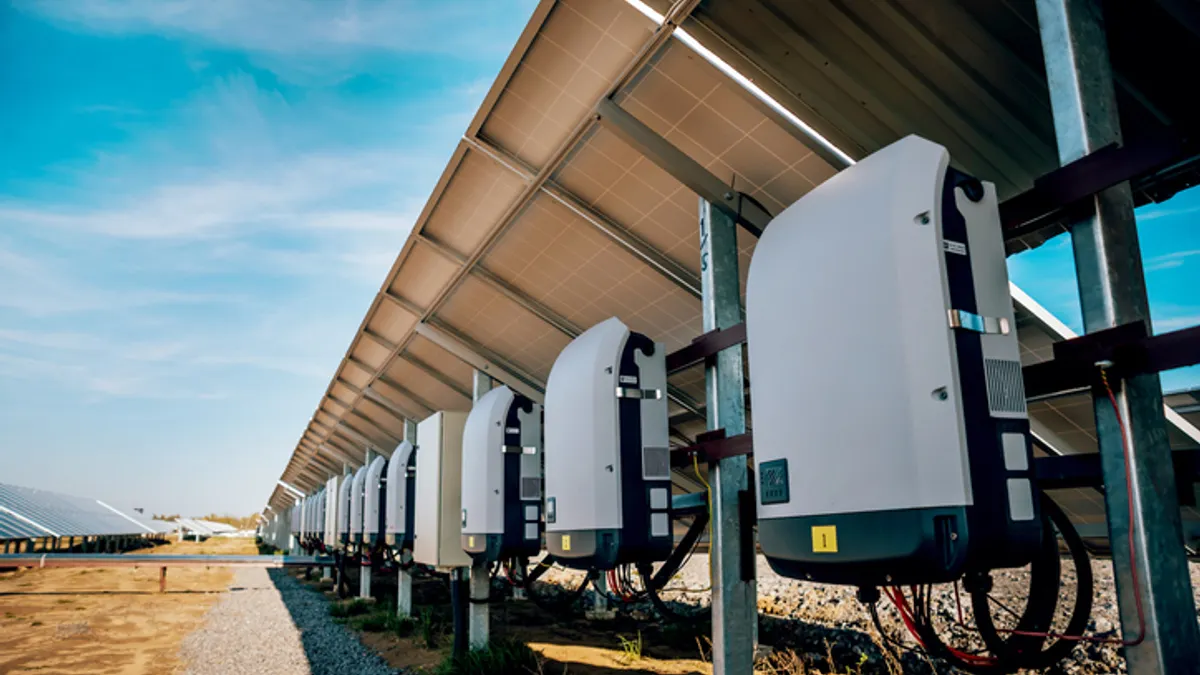Dive Brief:
- Hearings at the Nevada Public Utilities Commission began Monday and will conclude Wednesday on new rates proposed by NV Energy in order to implement Nevada's new net metering tariffs signed into law earlier this year.
- But according The Nevada Independent, even the utility is calling the proposal "dead on arrival," based on criticism from solar advocates, the Nevada Bureau of Consumer Protection and some members of the PUC.
- The rates would credit new rooftop solar customers at 95% of the retail electricity rate, declining 7% for every 80 MW of rooftop solar arrays deployed until it reaches a floor of 75% of the retail rate. NV Energy's proposal also called for an analysis on maximum demand charges for all residents and how net metering impacts customers.
Dive Insight:
When Nevada lawmakers restored the state's net metering program close to retail rates this year, they gave NV Energy a deadline, Sept. 1, 2017, to restart the program. But according to the utility, the way in which the law specified net metering customers be treated has left it in an untenable position.
According to reporting by The Nevada Independent, NV Energy attorney Elizabeth Elliot said at Monday's hearing that “because the revenue-neutral implementation of AB 405 filed on July 28 is already dead on arrival, a different mechanism for avoiding an intentional and purposeful under-collection of just and reasonable rates must be crafted in order to avoid a legal deficiency,”
An attorney representing Sunrun also reportedly dismissed the proposal as a waste of time.
According to NV Energy, the law (AB 405) requires the utility to not charge fees different than it would a standard customer. NV Energy's application outlined how the utility plans to use time-of-use rates in order to encourage energy storage deployment as well. But the utility urged the commission to consider studying maximum demand charges on all customers.
"Customers who can install technologies that reduce peak demand, or the need to build larger facilities, should benefit from their decisions," NV Energy wrote. "One way to reward this decision-making is through the implementation of a properly designed maximum demand charge."
Earlier this year, in a presentation to the Senate, NV Energy said requiring the utility to purchase excess generation at close to retail rates would cost more than $63 million annually — or about $1.3 billion over two decades. But the utility now indicates the figure would be closer to $40 million.













